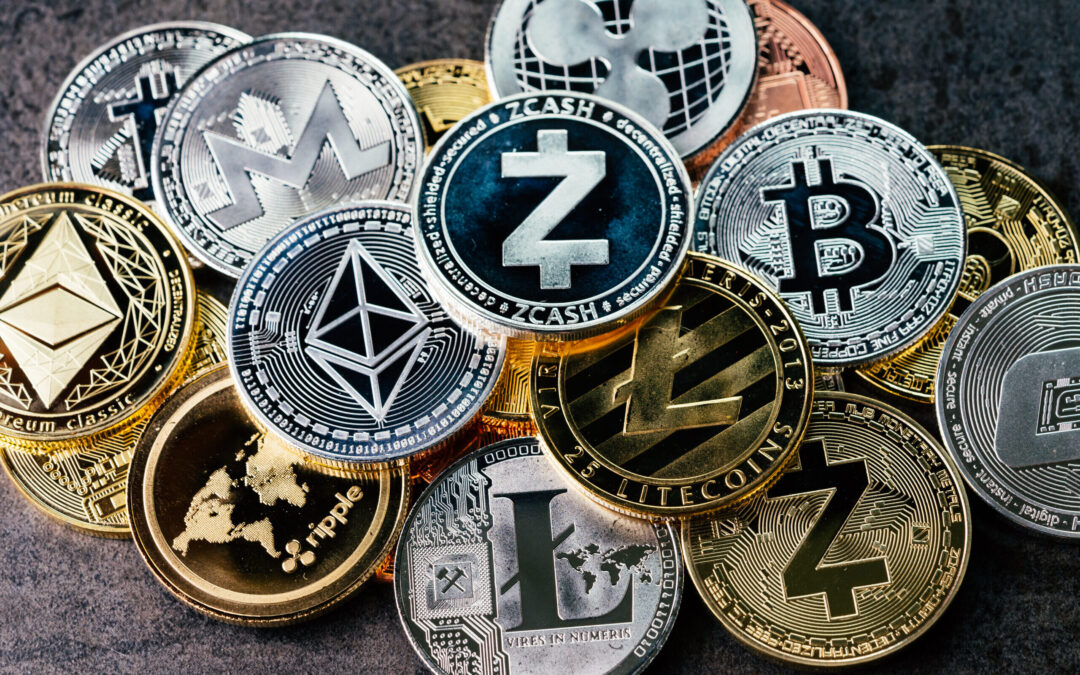We’re back with another installment of my informal “Ask the Crypto Expert” series.
This time, I talk with my crypto guy, Banyan Hill’s Ian King, about some risks surrounding ethereum’s (ETH) merge this summer, why you shouldn’t worry about “winner takes all” in the crypto space and what decentralized really means.
Let’s dive back in.
We’ve published the transcript of my interview with Ian in easily-digestible chunks. Follow these links to get caught up: Part 1, Part 2 and Part 3.
What to Expect When Ethereum Merges
Adam O’Dell: Now, I’ve read some, not skepticism, but concerns that when this switch-over happens, when proof-of-stake and proof-of-work protocols merge, that the network might be more vulnerable to hacking because a lot of the miners might close up shop early and try to sell their equipment. Or there might be a fork in the chain, where the people still wanting to mine with proof-of-work might make a fork (or new chain) of ethereum.
If there’s anybody worried about this merge, what’s your sense of security over this event happening? What should we be aware of?
Ian: Well, with technology, things always take longer. There’s always hiccups along the road.
This is a brand-new innovative technology that is working on the absolute fringe of what we know and what we’re capable of as a society in finance, in media. So there definitely is going to be hiccups along the way.
Crypto Competition: Strength in Numbers
Ian: Now, ethereum is not the only chain that does smart contracts. You’ve got solana (SOL), avalanche (AVAX), Mirror protocol (MIR), and Phantom protocol (PHM). All these chains have different consensus mechanisms, and they’re testing them out.
I liken this to back in the early days of search engines. Remember 25 years ago, when we had Infoseek, AltaVista, Go.com, Yahoo and many more?
Then eventually, one search engine won. Google did things a little bit better, and everybody started using it.
I think that it’s different this time, in that you’re going to have competing chains.
Ethereum will have its consensus mechanism one way. It’ll probably be good at certain things like decentralized finance (DeFi).
Solana has a different consensus mechanism. It might be better in, let’s say, nonfungible tokens (NFTs).
Phantom is building out a robust decentralized finance offering right now.
So I don’t think that it’s going to be winner take all, but I think there’s going to be a lot of competitive chains.
Another reason for that is that people tend to buy one token that they believe in, then they start investing in the infrastructure that’s built on top of this “Layer 1.” Then they stick with it, right?
So there’s not as much switching, going on back and forth, as there was back in the day. Remember when “Google” became a verb, and everybody just migrated to it because its search engine became so much better by everybody using it?
I think that each chain will have different pros and cons to it. So I don’t think that ethereum is the end-all be-all in the crypto markets.
Decentralized Finance Reveals Crypto’s True Potential
Adam: Gotcha. OK. I know you’ve said before that you think ethereum’s going to overtake bitcoin, probably related to this merger. So that’s exciting in and of itself.
But you’ve also mentioned that less than 1% of the population owns crypto. There’s a lot of runway for growth and expansion.
And the mere fact that it’s a decentralized system … where it’s not winner take all … that’s music to my ears. I know that there’s a lot of targets on the backs of Big Tech, the Googles and the Amazons right now, that kind of control everything from a centralized point of view.
So it sounds like this is a decade for the little investor that wants to diversify across not just the blue-chip crypto assets, but also some of the more alternative coins and the smaller protocols that are growing.
Would you say that’s true?
Ian: Absolutely.
If you think about what crypto actually does, it enables a user and an owner of cryptocurrency to earn rewards for participating and providing digital resources.
That can be anything from being in a liquidity pool, where you can be a market maker almost by staking coins on Uniswap or other decentralized exchanges, to actually providing cloud storage in a decentralized way.
There’s a company right now called HoloPort that’s shipping these devices that you connect to the network, and people will store files on your decentralized cloud instead of having one big database somewhere run by Amazon, Google or Microsoft.
Every computer in America will have idle storage space that other people can store files on. That’s another big idea.
That’s it for this installment. Ian and I will go over that last big idea in more detail next time.
Ian hit me with so many interesting ideas within the crypto space during our short conversation.
You can see that he’s passionate about this asset class that has a ton of potential.
And he wants to help you make money within the crypto space.
He’s done it before.
Within a year of initiating these trades, Ian locked in massive gains like:
- 1,061% on Binance.
- 1,934% on solana.
- And 18,325% on Terra!
And he just released his latest “buy alert.”
Click here to see why he calls this “the greatest investment in history.”
To good profits,

Adam O’Dell
Chief Investment Strategist




